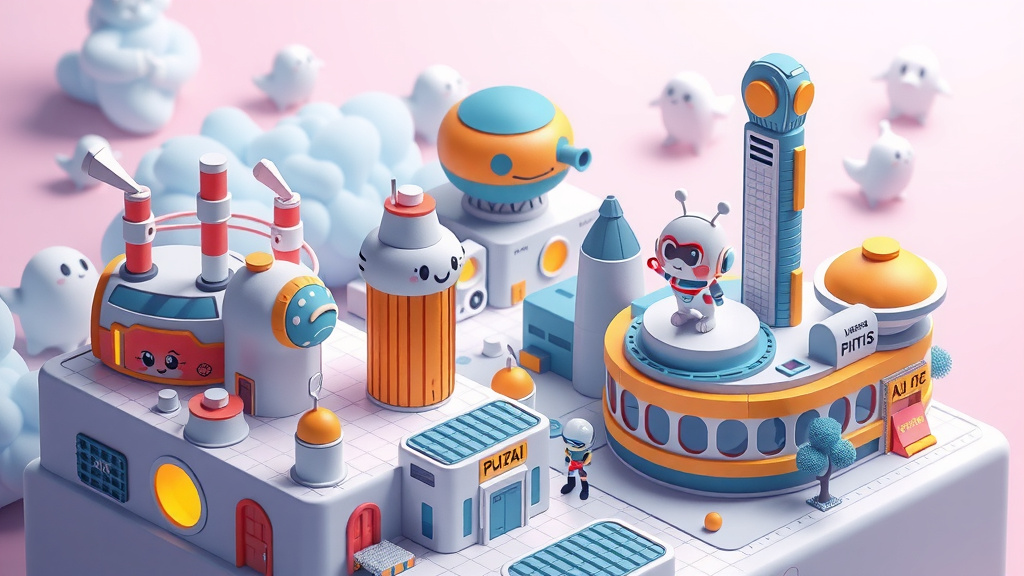The intersection of artificial intelligence (AI) and various industries is transforming the way we live and work. From manufacturing to music, AI is revolutionizing processes, improving efficiency, and creating new opportunities. In this news brief, we'll explore the latest developments in AI and its impact on different sectors.
AI in Manufacturing
The EMS (Eric Miscoll Show) recently discussed how inspection processes are evolving with the help of AI. Industry experts Oshri Cohen and Joel Scutchfield shared insights on how AI enhances reliability and accuracy in inspections, creating a more efficient production environment. The conversation also touched on the critical role of data collection in shaping effective AI systems and how manufacturers can leverage these technologies to reduce defects and improve traceability.
AI in Music
Musicians are now using AI to create original melodies and even entire albums. AI generators like AIVA, Loudly, Amper, Beatoven, and LANDR assist musicians in creating music. However, the growth of AI-generated music has raised concerns about copyright and ownership. Ed Newton-Rex, a veteran of the AI-music industry, is organizing a new album project to protest the UK government's plans for AI regulation. He believes AI firms are lobbying aggressively to weaken copyright laws, misleading policymakers by grouping all AI advancements together, even those that don't require copyrighted data.
AI in Procurement
Procurement fraud has become a significant concern for organizations worldwide. Coupa, a leading procurement software provider, has developed Spend Guard, an AI-driven safety net that identifies potential fraud and inefficiencies in real-time. The company's industry principal, procurement, emphasized the importance of changing the mindset around fraud prevention, moving from a manual, reactive approach to an automated, proactive one.
AI in Safety
Nokia is leveraging AI to ensure workers return home safely. The company has been working on AI for over a decade and deploys over 800 AI models across 350 use cases. AI-powered digital twins have reduced on-site visits by two-thirds, minimizing risk exposure while improving accuracy. Predictive HW analytics can detect faults up to two weeks in advance with 90% accuracy, enabling remote site resets to prevent unnecessary trips, reducing operational risks and downtime.
AI in Communication
Anthropic has launched the Claude 3.7 Sonnet model, an advanced AI model that can produce faster responses or display its step-by-step reasoning process. The model combines multiple reasoning approaches to solve complex problems more effectively. It will be available on all Claude plans, including Free, Pro, Team, and Enterprise, but the extended thinking mode feature is only available on paid plans.
AI in Large-Scale Language Models
DeepSeek AI has released DeepEP, a communication library specifically designed for MoE models and expert parallelism (EP). DeepEP addresses the inefficiencies inherent in how tokens are dispatched and aggregated across GPUs. The library provides high-throughput, low-latency all-to-all GPU kernels—commonly referred to as MoE dispatch and combine kernels—that streamline data exchange during both training and inference.
AI in Smart Ecosystems
Meizu will debut its full AI ecosystem at MWC 2025, showcasing its theme, "AI Illuminates a Better Life." The company will present its products based on Flyme AIOS technology, which focuses on three core areas: smart glasses, smartphones, and smart cars. Additionally, they will present products like overseas smartwatches and tablets, highlighting a seamless, cross-device connected vision of future smart living.
AI in Copyright
A group of 1,000 musicians released a "silent album" to protest the UK government's plans to change copyright law. The album, titled "Is This What We Want?", features tracks from Kate Bush, Imogen Heap, and contemporary classical composers Max Richter and Thomas Hewitt Jones, among others. The album is just the latest move in the U.K. to bring attention to the issue of how copyright is being handled in AI training.
Key Takeaways
- AI is transforming various industries, from manufacturing to music, and improving efficiency and creating new opportunities.
- The use of AI in inspection processes is enhancing reliability and accuracy, creating a more efficient production environment.
- AI-generated music has raised concerns about copyright and ownership, with some artists protesting the UK government's plans for AI regulation.
- AI is being used to prevent procurement fraud, with companies like Coupa developing AI-driven safety nets to identify potential fraud and inefficiencies.
- Nokia is leveraging AI to ensure workers return home safely, using AI-powered digital twins and predictive HW analytics to minimize risk exposure.
- Anthropic has launched the Claude 3.7 Sonnet model, an advanced AI model that can produce faster responses or display its step-by-step reasoning process.
- DeepSeek AI has released DeepEP, a communication library specifically designed for MoE models and expert parallelism (EP).
- Meizu will debut its full AI ecosystem at MWC 2025, showcasing its theme, "AI Illuminates a Better Life."
- A group of 1,000 musicians released a "silent album" to protest the UK government's plans to change copyright law.
Sources
- The EMS (Eric Miscoll Show) - Is Inspection Leading the AI Revolution in Manufacturing? · EMSNow
- Musicians hone their craft with artificial intelligence
- Coupa: AI Is Cure for Procurement Fraud Epidemic
- Leveraging AI to ensure workers return home safely
- Ed Newton-Rex on music's AI-training battles: 'The public totally agrees with creators here'
- Singapore's biggest bank DBS to cut 4,000 roles as as it embraces AI
- Anthropic unveils advanced AI hybrid reasoning model
- DeepSeek AI Releases DeepEP: An Open-Source EP Communication Library for MoE Model Training and Inference
- Meizu to debut AI full ecosystem products at MWC 2025
- 1,000 artists release 'silent' album to protest UK copyright sell-out to AI
